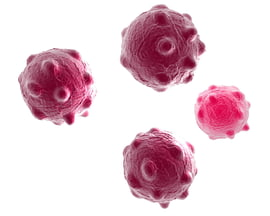Exosome Research Products
Exosomes are extracellular vesicles secreted from many cells and are found in various body fluids including serum, plasma, saliva and urine. Exosomes consist of lipid bilayer membranes, from 40nm to 100nm in diameter, and contain several proteins and nucleic acid such as microRNA, mRNA and DNA. In recent years, it has been suggested that exosomes may be biomarkers for cancer, diabetes, neurological diseases and various diseases. Exosomes bear specific protein markers of the endosomal pathway, such as tetraspanins (CD63, CD9 and CD81), heat shock proteins (HSP70) and EpCam depending on their cellular origin.
MBLI offers kits, antibodies, tools, and protocols for the isolation of exosomes as well as for characterization.

Method of Exosome Isolation
Major ways of concentrating and isolating exosomes
|
Ultracentrifugation method |
Polymer-based precipitation method |
Immunoaffinity method |
|
|---|---|---|---|
|
Method |
|
|
|
|
Advantage |
|
|
|
|
Disadvantage |
|
|
|
|
MBLI products |
- |
- |